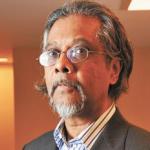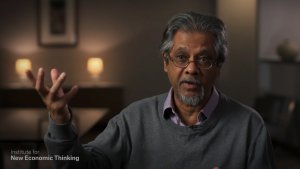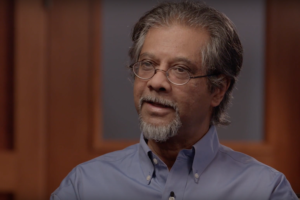The economic history of the developed capitalist world appears to be one almost constant progress..seen from afar, it is the system’s order, its internal coherence, which stands out. Yet the closer one looks the more haphazard it all seems. Individuals wander along entangled paths, propelled by obscure motivations towards some dimly imagined ends, criss-crossing and colliding as they at out their economic roles of buyers and sellers, producers and speculators, employed and unemployed.. everywhere there appears to be a characteristic unevenness.. seen up close, it s the system’s disorder that is most striking.
How does one address these two, equally real, aspects?
Anwar Shaikh’s monumental book represents a very rich intellectual lifetime’s attempt answer the question posed at its outset. Is there a meaningful theoretical framing that can generate a meaningful understanding of the turbulent dynamics of capitalist development? What empirical and analytical approaches are best to achieve this aim? What needs to be re-learned and what needs to be un-learned in order to better understand the process of capitalist expansion?
In a recent interview at the INET offices in New York, Anwar Shaikh provided a background to the work and his life in this quest. Shaikh starts from an uncompromising position-that theory is to be respected and that a meaningful understanding of the world requires an analytical undergirding that is not constantly having to create patches to deal with real features of the economy as imperfections. He therefore rejects what he terms the neoclassical approach that starts with “Perfect firms, perfect individuals, perfect knowledge, perfectly selfish behavior, rational expectations, etc.” and then “various imperfections are introduced into the story to justify individual observed patterns”. Nor is he satisfied with the primary alternative, Keynesian economics, which also approaches the world through what he terms an “imperfectionist lens”.
Shaikh’s broad thesis revolves around the idea that there is an alternative tradition-embedded in the classical approach of Smith, Ricardo and Marx which insists on understanding the world on its own terms rather than from an idealized economy from which the real world deviates. This approach focuses on what is termed “real competition” wherein competition between firms, each seeking to get the highest price they can, leads to a “turbulent gravitation” of prices around values. As such, there is never an equilibrium, but a dancing around some key deeper parameters.
Shaikh‘s work is very much in the classical tradition, but his work should really be seen as a colossal effort to reanimate it as well as to address its various lacunae (such as not having a very good theory of finance or not having a clear theory of interest rates). As he puts it, his is an archaeological effort at understanding the ruins of past arguments and to re-imagine them in the current age.
In the wide-ranging interview, Shaikh provides a glimpse into his extraordinarily courageous, difficult and lonely journey, beginning with his political and economic formation in the 1950s and 1960s before moving to the 40-year intellectual journey of trying to resurrect a more coherent analytical framework. Given the pressures to simply accept the fads of the time, Shaikh’s willingness to forego shallow recognition and to follow his own intellectual instincts is a profile in courage; whether this involved trying to generate an alternative national accounts system, exploring the weakness of the theory of comparative advantage in favor a or a more grounded classical theory of trade, understanding distributional dynamics through the tools of Physics, or a 10-year detour into the theory of chain indexing that was in the end, extremely productive.
We hope you enjoy this interview with one of the most astonishingly original economic thinkers of our time; one whose treading an alternative path has resulted in a body of work will continue to be a source of critical engagement for students of capitalist dynamics for decades to come.


